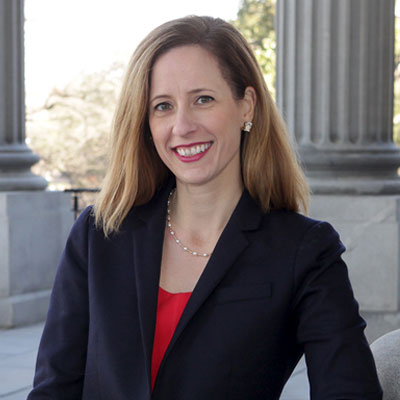Being “nice” could never right such wrongs - Ann Warner
By Ann Warner, CEO of WREN

I was raised to be nice.
Growing up in a homogenous suburban community in the South, I thought that if you were a nice person and used your manners, you could solve most problems and schoolyard injustices.
It took me a long time to realize how much the world unfairly accommodated nice, white people like me.
These accommodations have facilitated my access to education, housing, jobs, economic security, and the protection of law enforcement. Unfortunately, my comfort and security have come at the expense of black and indigenous people of color.
Being “nice” could never right such wrongs.
Over the years, in the nonprofit sector that is disproportionately led by white women like me, I am still learning that defaulting to “nice” at the expense of grappling with injustice is counterproductive and harmful.
For the last several years – and especially over the last year – WREN has been on a journey toward being more explicitly and intentionally anti-racist. We have looked at how transformation must take place at multiple levels: individual, interpersonal, organizational, and structural.
We have had difficult conversations about how our own workplace culture upholds white supremacy, and I have had to reflect and address the ways in which my role as a leader has directly contributed to that culture.
On this journey, I am learning that if I want to change an unjust system, I have to move beyond being nice.
I must have conversations and take positions that will make myself and others feel uncomfortable.
I am learning to accept criticism and feedback as gifts that can help me and my work change for the better. I have made plenty of mistakes and expect to make many more. Change is messy and uncomfortable, but it is absolutely necessary if we want to live in a world where everyone is safe, healthy, and free.
As I write this, I am conscious of the ways in which this note continues to center whiteness in the non-profit sector. I hope that it encourages other white folks like me to work through the messiness and injustice of confronting our own privilege.
Ultimately, I hope it helps us make way for the voices and leadership of people of color to take the leadership that they deserve in our sector.
I hope you will join me and several of my colleagues from WREN’s board and staff for the March 4th Removing Our Blinders. We’ll talk about how we have moved beyond rhetoric and into action, and what we are learning on our journey.
EDITOR'S NOTE: Resources Shared on the Call:
- 10 Tips on Receiving Critical Feedback: A Guide for Activists
